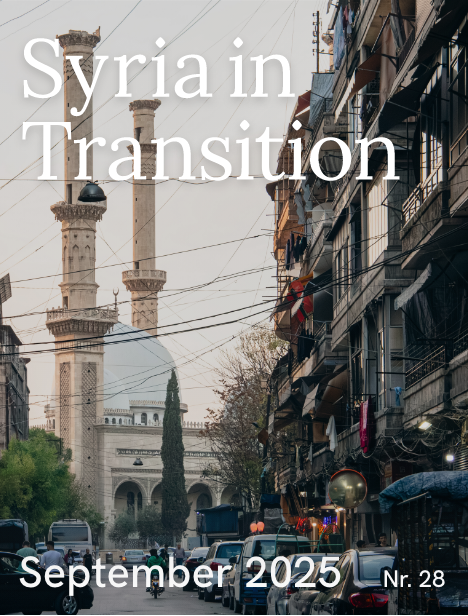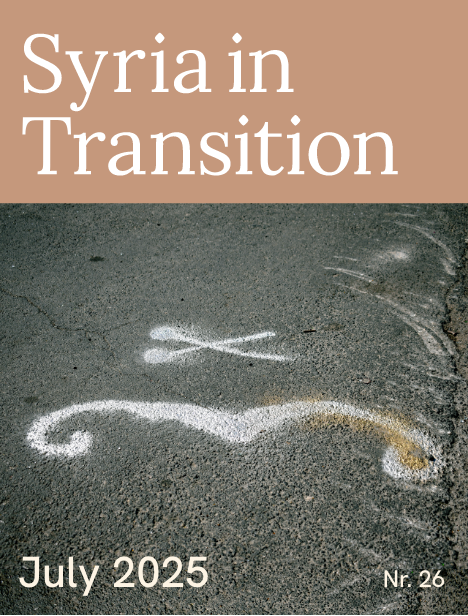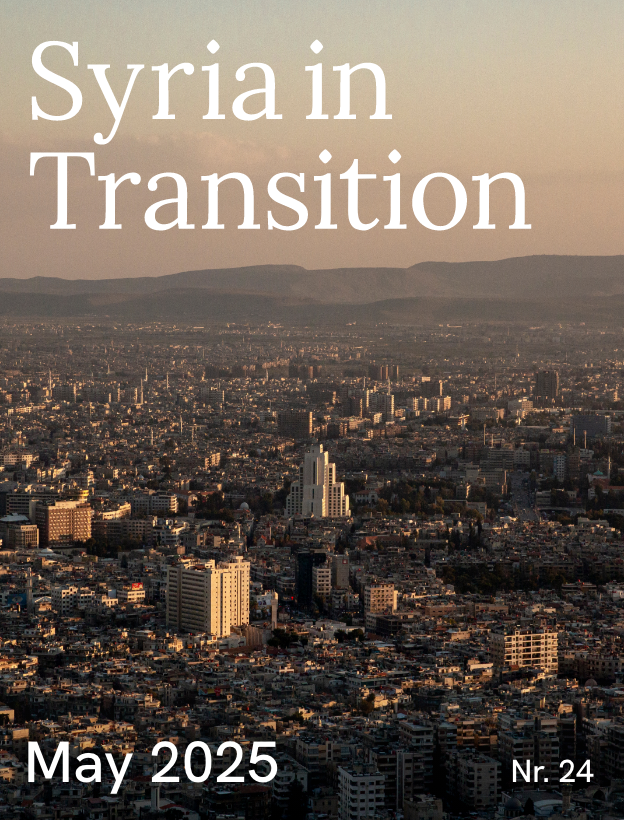Why do so many Syrian actors want to be politicians?
6. November 2025
There’s something wonderfully ironic in modern Arabic political language about calling the representative of the people in parliament “the people’s representative.” The word representative (mumathil) in Arabic also means “actor”, as in someone who acts in a play or TV drama. The Qur’an, for its part, had a rather more dignified term for “representative” — naqīb, or “leader.”
One wonders: how did “actors” acquire such prestige? And why do actors now crave the glory of political leadership, when they already enjoys fame without the headaches of politics? Do they long for real power and not just the make-believe of cinema and the stage?
The glory of the film star has outshone that of the poet, the writer, even the philosopher. Those poor souls are often unknown, unintelligible, and usually unpaid. The actor, by contrast, can play a poet, pretend to be a philosopher, pose as a revolutionary, or even act as a political leader. He becomes everyone and no one, a shape-shifting miracle of lighting and lipstick.
Actors play kings and knights, and the audience begins to believe they are kings and knights. Sometimes, so do they.
In Hollywood or Bollywood, he’s Superman: flattening villains with a single punch, flying through the air on wires, while a transfixed audience sits in the dark, their faces lit only by the glowing screen. He fights evil and wins in two hours, or a few bingeable episodes.
Actors play kings and knights, and the audience begins to believe they are kings and knights. Sometimes, so do they. They are greeted at festivals as “Commander of the Faithful” — even if they couldn’t recite a verse of scripture if their careers depended on it. Then comes the next role, and the next title. Some even develop opinions about religion and atheism, despite their only qualification being memorised TV dialogue delivered between wardrobe fittings.
In Syria, a few stars decided politics was the next stage. Or rather, politics came to them, sometimes by phone call. Syrian actor Ayman Zeidan found himself in parliament without so much as a campaign speech, just a polite request from the intelligence services to “stand for election.” He did. And he won. Naturally.
Another, Jamal Suleiman, decided to aim higher: the presidency. Having played heroes like Saladin, Abd al-Rahman al-Dakhil, and Maslama ibn Abd al-Malik, he apparently concluded that he had acquired enough “statecraft” through osmosis. Like Ronald Reagan, or Ukraine’s Volodymyr Zelensky, he confused the part with the person. Admirers called him “the most cultured of Syrian actors.” Then someone posted a picture of him dancing with a belly dancer at 2am – a reminder that politics has less flattering lighting than television.
Actors were once despised in Syria and across the Arab world. Yet the actor persevered, charmed the public, and rose to stardom.
The actor began as a social outcast among Syrians, and indeed among Arabs in general. A quick glance at the history of the art is enough to prove this, especially in the long and exhausting journey of Abu Khalil al-Qabbani, the father of Syrian theatre, whose life story (1833–1903) reads like a tragicomedy of genius and rejection. A towering figure of Syrian culture, he was nevertheless shunned by a society too conservative to see theatre as anything other than debauchery.
Actors were therefore once despised in Syria and across the Arab world. The early word for actor — mushakhkhasati — meant , “faker.” Pretending to be other people was considered deceitful. Yet the actor persevered, charmed the public, and rose to stardom. Now they are known as “representatives.” Syrians, who once spat on the stage, now huddle around the TV, warming their souls with soap operas. The actor has became a celebrity, a morale booster for presidents, summoned to entertain a weary nation as if performing CPR on its spirit.
Bassam Kousa - an actor known as the “Joker of Syrian cinema” - lamented the miserable lot of the poor Syrian actor and envied the wealth and glory of India’s film stars. What he failed to grasp, however, are the cultural and religious differences between Indians and Arabs. For the Arabs are descendants of the Prophet's Quraysh tribe, which famously never bowed to kingship. A story from pre-Islamic Arabia tells of Uthman ibn al-Huwayrith, a leading man in Tihama (in what is now southern Saudi Arabia/northern Yemen) who sought to become Rome’s appointed ruler over the Arabs. His cousin shouted, “A king in Tihama?!” The people duly abandoned him.
The Arabs, of course, eventually made peace with monarchy. The first was Muawiya ibn Abi Sufyan, who ruled from Damascus. But they have yet to accept an actor as king. One Syrian actress in the 1970s once compared herself to the Greek star-turned-minister Melina Mercouri. “Why not me?” she asked. She had forgotten that Athens and Damascus don’t share the same script.
The performer may dream of power, but the politician already has it. The difference is simple: one acts for applause, the other acts for real.
An actor can become a star, but seldom a monarch. Politicians, on the other hand, are born actors. They master the art of performance — not on film, but on news bulletins, podiums and propaganda reels. Some generals and presidents are virtuosos. One current Arab ruler perfected the role of the humble, devout man in a performance so convincing it fooled his rivals and comforted his patrons. With a little Western money, some Arab military help, and a flood of media coverage, he acted his way straight into the presidential palace.
Even presidents know their angles. One clasps his hands over his stomach as though his limbs were awkward props; another delivers his speeches with theatrical gravitas and carefully measured pauses. Hafiz Assad, the godfather of Syrian dictatorship, played the role of a monument — quite literally, commissioning hundreds of statues of himself. He even appeared at religious ceremonies like the Prophet’s birthday to steal the spiritual spotlight. One might say he staged his own “ascension,” from Qardaha to Damascus, and finally to the presidential palace.
For the Arab actor, the crown remains elusive. But for the political actor – the general with a script, the colonel with a camera crew – it’s well within reach. The performer may dream of power, but the politician already has it. The difference is simple: one acts for applause, the other acts for real.





